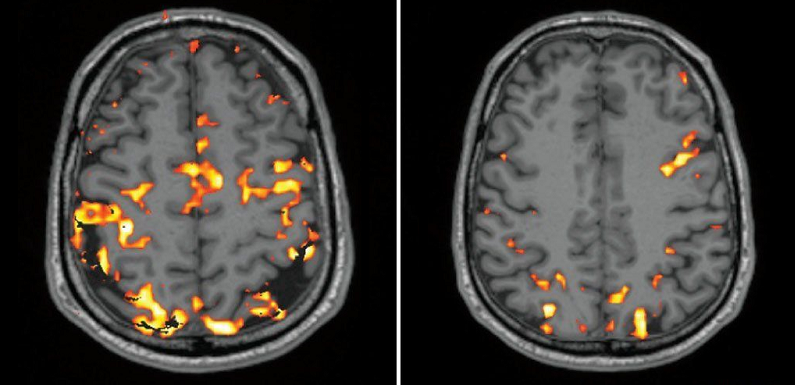
Shift work is a reality for millions of people worldwide, fueling industries that never sleep — healthcare, emergency services, transportation, and many more. While working non-standard hours may be financially rewarding or even exhilarating for some, it often comes at the expense of something far more valuable—sleep. But what happens when we routinely miss out on quality sleep or frequently disrupt our natural sleep patterns? The answer is a lot more complicated than just feeling tired the next day.
Research has consistently shown the importance of sleep in cognitive functioning — everything from memory and attention to decision-making can be significantly impaired when we don’t get enough rest. Yet, there is a glaring gap in our collective understanding of the long-term cognitive consequences that arise specifically from irregular sleep patterns associated with shift work.
Contents
The Mechanics of Sleep
Before we get into the cognitive consequences of irregular sleep patterns, it’s important to understand how sleep works in the first place. This will help us appreciate why sleep is so crucial for cognitive functioning and what happens when this natural cycle is disturbed.
The Circadian Rhythm
Definition
The circadian rhythm is our internal biological clock that runs in the background, controlling various physiological processes such as hormone secretion, body temperature, and sleep-wake cycles. This internal clock is regulated by a small part of our brain known as the suprachiasmatic nucleus, which resides in the hypothalamus.
Role in Regulating Sleep
Our circadian rhythm is highly influenced by external factors like light and temperature. During the day, exposure to natural light signals the brain to produce hormones like cortisol that keep us awake and alert. As darkness sets in, the brain releases melatonin, preparing us for sleep. When you work shifts that do not align with natural daylight hours, your circadian rhythm can become disrupted, leading to sleep problems and, subsequently, cognitive issues.
Sleep Stages
Now that we understand the circadian rhythm, let’s look at what happens when we actually fall asleep. Sleep isn’t a monolithic block of time where the brain is inactive. Rather, it’s a dynamic process involving various stages, each with its own significance.
REM Sleep
Rapid Eye Movement (REM) sleep is perhaps the most well-known sleep stage, often associated with vivid dreams. During REM sleep, your eyes move quickly in various directions, but the rest of your body remains mostly immobile. This stage is crucial for emotional regulation and memory consolidation. Lack of sufficient REM sleep can lead to mood swings, poor concentration, and impaired learning abilities.
Non-REM Sleep
Non-REM sleep can be further divided into three stages: N1, N2, and N3. Each stage serves a specific purpose:
- N1 is the lightest stage of sleep, where you’re transitioning from wakefulness to sleep.
- N2 is a moderate stage of sleep where your heart rate and body temperature drop.
- N3 is the deepest stage of sleep, crucial for physical restoration, cellular repair, and immune system functioning.
Deprivation of non-REM sleep, particularly the deeper stages, can lead to decreased physical performance, increased susceptibility to illnesses, and in the long term, can even contribute to cognitive decline.
The Sleep-Wake Homeostasis
Beyond the circadian rhythm and the sleep stages, there is another system at play: the sleep-wake homeostasis. This is your body’s way of balancing sleep and wakefulness. Simply put, the longer you’re awake, the stronger your desire for sleep becomes. And the longer you sleep, the more this homeostatic drive decreases, until you’re naturally inclined to wake up [1].
When you have irregular sleep patterns, this sleep-wake homeostasis can be severely disrupted, leading to difficulties falling asleep when you want to and struggling to stay awake when you need to. Over time, this imbalance can lead to both immediate and long-term cognitive issues.

The Prevalence of Shift Work
Having discussed the mechanics of sleep, we’re now better equipped to get into the world of shift work. It’s important to realize that the issue of irregular sleep patterns due to shift work is far from being a niche problem; it’s a pervasive condition affecting a wide swath of the working population.
Industries Affected
Shift work is ubiquitous and exists in a wide range of fields, but some industries are more affected than others. It’s not just emergency services and healthcare; here’s a closer look at some sectors where shift work is common:
Healthcare
Doctors, nurses, and other medical professionals often work in shifts to provide 24/7 care to patients. This is especially true for emergency departments and intensive care units.
Emergency Services
Firefighters, police officers, and emergency medical technicians are always on call, making shift work a necessity in these fields.
Transportation
Pilots, air traffic controllers, truck drivers, and railway employees often work in shifts to ensure the smooth running of essential transportation services.
Manufacturing and Production
Factories often operate around the clock to maximize production. Workers here usually work in rotating shifts.
Hospitality and Retail
Hotels, convenience stores, and some retail chains require employees to work shifts to cater to customer needs at all hours.
Demographic Insights
Shift work is not evenly distributed across all age groups or demographic categories. Understanding who is more likely to engage in shift work can offer insights into the populations most at risk for the cognitive issues we will discuss later [2].
Age Group
Younger adults, especially those in their 20s and 30s, are more likely to be involved in shift work. This could be due to the types of entry-level jobs available to them or a greater willingness to take on irregular schedules.
Gender
Both men and women engage in shift work, but the distribution varies by industry. For example, nursing, a field dominated by women, often requires shift work, while industries like construction, more male-dominated, also have their share of shift schedules.
Socioeconomic Factors
Lower-income groups may be more inclined to take on shift work due to the financial incentives such as shift differentials. However, white-collar jobs like doctors and IT support also require shift work, making it a cross-sectional issue.
Social and Economic Factors
Shift work is not just a result of industry demands; it’s also shaped by broader social and economic trends.
Globalization
In a world that’s increasingly interconnected, many businesses operate 24/7 to cater to global markets, thus necessitating shift work.
Technological Advancements
Automation and AI have reduced some manual labor, but they have also created roles that require round-the-clock monitoring.
Economic Pressures
Companies often use shift work to maximize productivity and meet consumer demand, especially in competitive markets.

Immediate Cognitive Effects of Irregular Sleep Patterns
Now that we have an understanding of both the mechanics of sleep and the widespread nature of shift work, it’s time to dig into the heart of the matter: how do irregular sleep patterns impact cognitive functioning? While it’s tempting to think that a few restless nights here and there aren’t a big deal, the reality suggests otherwise. Even short-term sleep disturbances can have immediate cognitive consequences.
Attention and Focus
Concentration and focus are foundational elements of cognitive performance. Without the ability to pay attention to tasks, we’re less effective in almost every endeavor. Let’s look at how irregular sleep impacts these critical cognitive functions [3].
Impact on Concentration
A lack of consistent, quality sleep can wreak havoc on your ability to concentrate. You may find it increasingly difficult to focus on tasks, which can be particularly dangerous in jobs that require a high level of attention, such as healthcare and transportation.
Error Rates
Studies have shown that lack of sleep can increase the rate of errors in tasks that require meticulous attention. In some professions, these errors could have life-altering or even life-threatening consequences.
Memory
Memory isn’t just about recalling past events; it’s also crucial for learning new information and skills. So how does inconsistent sleep influence memory?
Short-Term Memory
Lack of sleep can impair your short-term memory, making it challenging to retain new information. This could manifest in forgetting tasks, misplacing items, or even struggling to remember conversations or instructions.
Long-Term Memory
While long-term memory is less likely to be immediately affected, it’s important to note that sleep plays a crucial role in the consolidation of memories. Without adequate REM and deep sleep stages, your brain struggles to process and store new information for the long term.
Decision-Making and Problem-Solving Skills
Beyond memory and focus, your ability to make decisions and solve problems can also be impaired by irregular sleep patterns.
Impaired Judgement
Lack of sleep can cloud your judgement, making it difficult to assess situations accurately or make sound decisions.
Reduced Problem-Solving Capabilities
Sleep deprivation negatively affects your ability to think critically and solve problems, often leading to poorer outcomes in both personal and professional settings [4].
Emotional and Psychological Consequences
Cognitive effects aren’t limited to tasks and skills; they also encompass emotional and psychological well-being.
Mood Swings
You’re more likely to experience mood swings and irritability when you’re sleep-deprived, which can affect your social interactions and general well-being.
Increased Stress Levels
Lack of sleep can contribute to elevated stress levels, making it harder to cope with everyday challenges.

Long-Term Cognitive Consequences of Irregular Sleep Patterns
If the immediate cognitive effects of irregular sleep patterns weren’t alarming enough, the long-term consequences warrant even greater attention. While short-term effects may be somewhat reversible with proper sleep and self-care, the long-term impacts could have more enduring implications for your cognitive health.
Risk of Cognitive Disorders
Studies have begun to explore the link between irregular sleep patterns and the risk of developing cognitive disorders later in life. Here’s what we know so far.
Alzheimer’s Disease and Dementia
Research suggests that chronic sleep deprivation and irregular sleep patterns could be linked to an increased risk of Alzheimer’s disease and other forms of dementia. Sleep is thought to play a role in the clearance of beta-amyloid plaques from the brain, which are associated with Alzheimer’s disease.
Cognitive Impairment
Beyond Alzheimer’s, inconsistent sleep could be a contributing factor in other types of cognitive impairment. The brain needs consistent rest to function optimally, and the lack of it could accelerate cognitive decline.
Decline in Cognitive Performance
The long-term effects of sleep deprivation aren’t just about disorders; they also concern a gradual decline in cognitive performance across various domains.
Attention and Reaction Time
Over time, the effects of irregular sleep on attention and focus can become chronic. You may find it increasingly difficult to concentrate, and your reaction times may slow, making tasks that were once simple much more challenging.
Learning and Memory
Persistent sleep deprivation can lead to long-term issues with both learning new information and recalling it later. Over time, this can become a significant impediment in both personal and professional growth.
Emotional Well-being
The long-term emotional and psychological consequences should not be underestimated. Chronic sleep deprivation can lead to long-standing mood disorders like depression and anxiety, further affecting cognitive health.
Impact on Quality of Life
Ultimately, these long-term cognitive consequences have a ripple effect, impacting not just your cognitive health but also your overall quality of life.
Work Performance
As cognitive decline progresses, work performance can deteriorate, possibly affecting job security and financial stability.
Relationships
Cognitive issues can strain personal relationships, as mood swings, forgetfulness, and decreased emotional well-being make interpersonal interactions more challenging.
General Health
Cognitive decline is often accompanied by a deterioration in general health, including an increased risk for conditions like hypertension and diabetes, which in turn can further impair cognitive function.
Coping Strategies and Remedies for Irregular Sleep Patterns
We’ve spent considerable time outlining the immediate and long-term cognitive impacts of irregular sleep patterns. The picture might appear grim, but it’s not all doom and gloom. There are effective strategies and remedies that can mitigate these effects, even for those whose work schedules make regular sleep challenging.
Lifestyle Adjustments
Sometimes the best remedy starts with a change in lifestyle. Simple adjustments can make a world of difference in how you cope with irregular sleep schedules.
Consistent Sleep Scheduling
Even if you’re working in shifts, try to keep your sleep and wake times as consistent as possible on both working and non-working days. This helps regulate your internal body clock [5].
Nutritional Choices
Certain foods can affect sleep quality. Consuming foods rich in magnesium, like nuts and leafy green vegetables, can promote better sleep. Limit caffeine and sugar, especially before bedtime.
Exercise
Regular physical exercise can improve both sleep quality and cognitive performance. However, it’s advisable to avoid vigorous exercise close to bedtime as it might be stimulating and counterproductive.
Sleep Hygiene
Good sleep hygiene can provide a solid foundation for better sleep and cognitive function.
Creating a Sleep-friendly Environment
Your bedroom should be a sanctuary designed for sleep. Keep it dark, cool, and free from noise. Consider blackout curtains and white noise machines if necessary.
Pre-sleep Routine
Establishing a calming pre-sleep routine can signal your body that it’s time to wind down. This could include activities like reading, taking a warm bath, or practicing relaxation techniques.
Limiting Screen Time
The blue light emitted by phones and other devices can disrupt melatonin production, making it harder to fall asleep. Limit screen time in the hour before going to sleep to help improve sleep quality.
Medical Interventions
For some, lifestyle adjustments and improved sleep hygiene may not be enough. Medical interventions could offer another layer of support.
Sleep Medication
While they should not be the first line of defense, medications like sleep aids may be considered in consultation with a healthcare provider. Long-term use should be avoided due to the potential for dependency.
Cognitive Behavioral Therapy for Insomnia (CBT-I)
This form of therapy is increasingly recognized as an effective treatment for sleep issues. It addresses the thoughts and behaviors that contribute to sleep problems and helps establish a healthier sleep pattern.
Consult a Specialist
If sleep issues persist or cognitive decline becomes noticeable, it may be time to consult a sleep specialist or neurologist for more advanced diagnostics and treatments.
References
[1] Effects of Shift Work on Cognitive Performance, Sleep Quality, and Sleepiness
[2] Shift Work Disorder
[3] Sleep disturbances, depressive symptoms, and cognitive efficiency as determinants of mistakes at work in shift and non-shift workers
[4] Neurocognitive impairment in night and shift workers
[5] Effects of circadian misalignment on cognition in chronic shift workers

